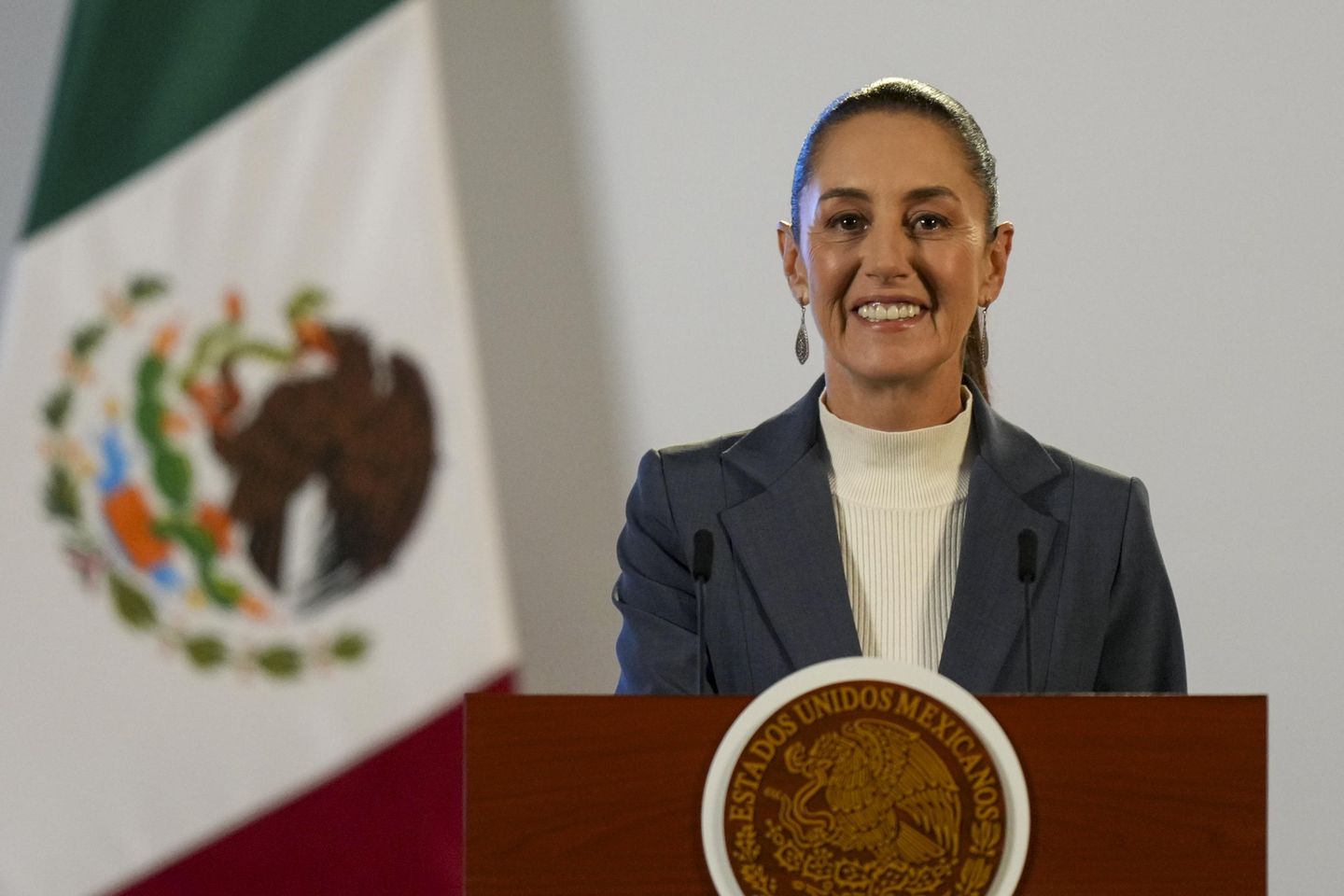Mexico’s New President Claudia Sheinbaum Pledges to Resume Energy Transition
In her first days as Mexico’s new president, Claudia Sheinbaum wasted no time in making her position clear on the issue of fossil fuel reliance. Sheinbaum, who succeeded her predecessor and mentor Andres Manuel Lopez Obrador, has vowed to resume an energy transition that was halted under his administration.
The decision to distance herself from the fossil fuel policies promoted by Lopez Obrador is a significant shift in Mexico’s energy strategy. While Lopez Obrador had championed the use of fossil fuels, particularly oil, Sheinbaum’s commitment to resuming the energy transition indicates a new direction for the country’s energy sector.
Sheinbaum’s stance on energy reflects a growing global trend towards renewable sources of energy. With concerns about climate change and environmental sustainability on the rise, many countries are looking to transition away from fossil fuels towards cleaner, more sustainable alternatives.
Mexico, as a major oil producer and consumer, has long been reliant on fossil fuels for its energy needs. However, Sheinbaum’s pledge to resume the energy transition signals a shift towards a more sustainable and environmentally friendly energy future for the country.
The decision to resume the energy transition is likely to have far-reaching implications for Mexico’s energy sector. It could mean a shift towards greater investment in renewable energy sources such as solar, wind, and hydropower, as well as policies aimed at reducing carbon emissions and promoting energy efficiency.
One of the key challenges facing Mexico’s energy sector is the need to balance economic growth with environmental sustainability. While fossil fuels have traditionally been seen as a cheap and reliable source of energy, they also come with significant environmental costs, including air pollution, water contamination, and greenhouse gas emissions.
By pledging to resume the energy transition, Sheinbaum is signaling her commitment to finding a more sustainable balance between economic development and environmental protection. This could involve investing in renewable energy infrastructure, implementing policies to promote energy efficiency, and reducing the country’s reliance on fossil fuels.
The decision to resume the energy transition is also likely to have political implications for Mexico. Lopez Obrador, who had championed the use of fossil fuels as a key component of his economic agenda, may face criticism from his supporters for his successor’s decision to shift towards renewable energy sources.
However, Sheinbaum’s commitment to the energy transition could also win her support from environmentalists, climate activists, and other groups advocating for a more sustainable approach to energy policy. By positioning herself as a leader in the transition towards renewable energy, Sheinbaum could strengthen Mexico’s position as a global leader in the fight against climate change.
The energy transition is not just about reducing carbon emissions and promoting renewable energy sources. It is also about creating new economic opportunities and jobs in the clean energy sector. By investing in renewable energy infrastructure and technology, Mexico has the potential to create thousands of new jobs and stimulate economic growth in the green economy.
In addition to the economic benefits, the energy transition also has the potential to improve public health and quality of life for Mexican citizens. By reducing air pollution and greenhouse gas emissions, Mexico can improve air quality, reduce respiratory illnesses, and create a healthier environment for all its residents.
Sheinbaum’s decision to resume the energy transition is a bold and progressive step towards a more sustainable and environmentally friendly future for Mexico. By prioritizing renewable energy sources and reducing the country’s reliance on fossil fuels, Sheinbaum is positioning Mexico as a leader in the global transition towards a more sustainable energy future.
As Mexico’s new president, Sheinbaum has the opportunity to shape the country’s energy policy for years to come. By committing to the energy transition, she is sending a clear message that Mexico is ready to embrace a more sustainable and environmentally friendly approach to energy production and consumption.
In the coming years, Mexico’s energy sector is likely to undergo significant changes as the country transitions towards renewable energy sources. With Sheinbaum at the helm, Mexico has the opportunity to lead the way in the global fight against climate change and create a more sustainable future for generations to come.
Overall, Sheinbaum’s decision to resume the energy transition is a positive development for Mexico and for the planet as a whole. By prioritizing renewable energy sources and reducing the country’s reliance on fossil fuels, Mexico has the potential to become a leader in the transition towards a more sustainable and environmentally friendly energy future.









